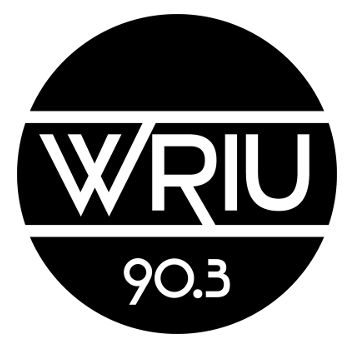Newport Jazz Interview Series: Butcher Brown
WRIU Newport Jazz Interview Series: Butcher Brown
“It just feels good to be able to honor the people that came before us in this music and being able to follow the same lineage playing those stages. Hopefully bigger stages to come.” – D.J. Harrison
Two members of Butcher Brown, Marcus Tenney and DJ Harrison, spoke with WRIU after their performance on the Quad Stage at Friday’s Newport Jazz Festival. With a sound reminiscent of A Tribe Called Quest and Sun Ra, these 5 musicians bend jazz across a multitude of genres. Based out of Richmond, Virginia, Tenney and Harrison were down-to-earth, passionate musicians with a bright future ahead.
Butcher Brown’s album Solar Music will be released October 6 and is available for pre-order. The album features Pink Siifu, Braxton Cook, Jay Prince, Nappy Nina, Keyon Harrold, Michael Millions, Charlie Hunter, and more.
Here is the conversation between Anna, Tenney, and Harrison [edited for brevity]:
A: How was it to take the historic Newport stage today?
DJ: In a sense, I mean just coming up studying jazz, this is always a staple in a sense of where a lot of the great played. To be able to somewhat be a part of that lineage? I think it’s dope.
M: I feel like it’s an honor and it is insane to have played the same stage as so many of the musicians I grew up studying. Miles Davis and Charles Mingus – there’s a computer that was right by the stage, and the screensaver is playing different photographs from different artists from different years of Newport Jazz. When I started the set, right before we started the set, I saw Miles Davis from ‘69, and then at the end of the set was Charles Mingus from 1962… And now we’re on the same stage they were on. It’s kind of like, OK, you wanted to do this, here you go. What are you going to do?
A: Your album, Solar Music, comes out October 6. Is there a favorite track that we don’t know about yet that you’re excited for people to hear?
DJ: I’m looking forward to all of it, for everybody to hear the whole package altogether. They all kind of have a special place to me, but I would say maybe “No Way Around It,” there’s a couple of collabs that aren’t out yet, and I think those are going to be the strongest, too – one in particular… A song with Jay Prince.
M: “Move” and “Eye never know” with Siifu and Keyon Harrold. That record to me is like a piece of art… If it was physical, it would go up on a wall in the MoMA… That’s what I’m most proud of.
A: Your sound has developed a lot since your first album in 2014, “All Purpose Music,” are there any influences you’d say helped you develop over the last decade or so?
DJ: I mean, just the development of the internet and being able to find something that is good and cool to you, but maybe not widespread. You can cultivate your own taste.
M: Stuff I got from my friends – sounds that come from places that are unknown, and just try to incorporate and figure out why it feels good to me, and then try to do it.
A: The audience was so engaged with your set today – it was the first set I saw where people were really on their feet and dancing – what would you say you hope the audience gets, and what did you get out of today?
DJ: For me, it’s just the enjoyment of playing music with my friends, with the homies, and being able to… play good music and make everybody feel better and feel good… When everybody is having a good time, we can all feel it – it’s like a certain spirit in the room, and that’s what we try to bring to ourselves and to the people.”
M: I think that the thing I want everybody to get out of this music is: teamwork. That’s a vibe. You don’t know everything, you can’t do everything – teamwork is how things get done, how things grow, how things move. So the team and the song is the most important – not the individual. And the thing that I get out of it is the information of how do certain sounds hit certain people – that’s the part that I’m the most interested in. How the song forms can grow more complex emotions in a person through like a five-minute experience, but then also, just the timing of a known sound can be a little unorthodox and change the whole framing in which you’re looking at the song. So, all that stuff that make the framing of things is what I’m more or less addicted to. So that’s what I’m interested in… How people take stuff.
A: Are there any stages, shows, or venues that you’ve yet to play that is a dream for you?
DJ: Well, we did the Hollywood Bowl recently, that was also I still can’t believe it. It just feels good to be able to honor the people that came before us in this music and being able to follow the same lineage playing those stages. Hopefully bigger stages to come. Hopefully we come back here next year, and the year after that, and the year after that.
M: For me, one of the biggest stages for me to play would be like a late night T.V. show stage, or, something like the Super Bowl – that would be crazy, just to feel the energy of one of the larger [stages]. I think the music can connect on that level, but it takes a lot to get to that level, so we’ll see what happens.
